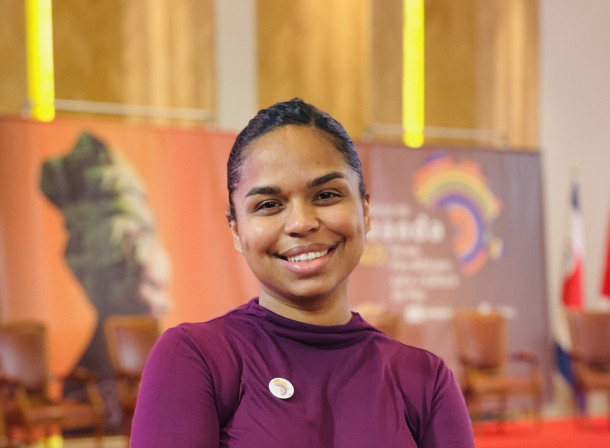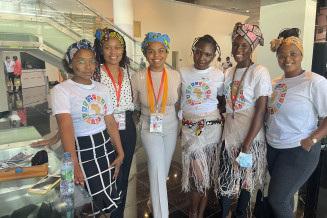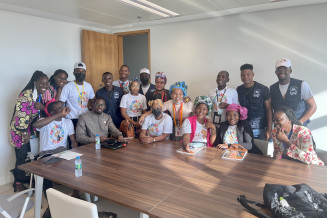Article
Meet Pauline Batista, Young Leader of the Biennale of Luanda 2021

My name is Pauline Batista, and between November 27 and December 2, 2021, I participated in the 2nd edition of the Biennale of Luanda as a Young Leader of the Intergenerational Dialogue.
In partnership with the Pan-African Youth Network for the Culture of Peace (PAYNCoP), UNESCO initially selected 118 youth from African countries and the Diaspora. I felt surprised to be selected among the 10 young leaders who were to fly to Luanda to participate in the Biennale. Was the invite mistakenly sent out, I wondered? Jokes aside, I could write at length about the details of my experience, from exchanging with Heads of State from various countries - host president João Manuel Gonçalves Lourenço (Angola), Marcelo Rebelo de Sousa (Portugal), Epsy Campbell Barr (Costa Rica), and many others - to meeting youth from all over the world, but today I will focus on our work as youth.
It is my research work that caught the selecting committee’s attention since it is critical to UNESCO and to the way that schools in countries from the Global South engage with UNESCO’s conventions and its standards. Being selected put a colossal responsibility on my shoulders, but also gave me the opportunity to be at the center stage and collaborate with other young people who do outstanding work to change narratives about Africa and Afro-descendants.
I focused on “The Contribution of Arts, Culture and Heritage to Sustainable Peace” based on my connection with the arts and using filmmaking across initiatives for community engagement and collaborative research with Afro-descendants. I was happy to join Misters Sally Alassane Thiam (Senegal) and Romilson Silveira (Sao Tome and Principe) in discussing the impact of the arts in creating better narratives for Africa globally. The dialogue sessions served as moments of truth in terms of what we can do locally, and to collaborate globally, and to learn how we could potentialize differences to contribute to the empowerment of Africans and Afro-descendant communities.
I am an Afro-descendant raised in a UNESCO Heritage site. I grew up with many questions that the academy has been helping me address in collaboration with the youth (and their new questions). And I felt that the conversations we had with the Angolan youth and the youth from other African countries and the Diaspora have lit a fire that will help us keep pushing. Despite speaking different languages and having different understandings of challenges associated with Africa, we all knew we needed to do better. And that by supporting each other during the years to come, we will.
We are just small pieces of a puzzle, joining a movement that has been happening for centuries and that started prior to the Biennale and will continue after it, because our communities have to take care of each other. The more I work with youth, the more I learn that we appreciate all institutional support in helping us make it happen, but we have been doing the work for centuries. And we won’t stop because we cannot afford to do so.




